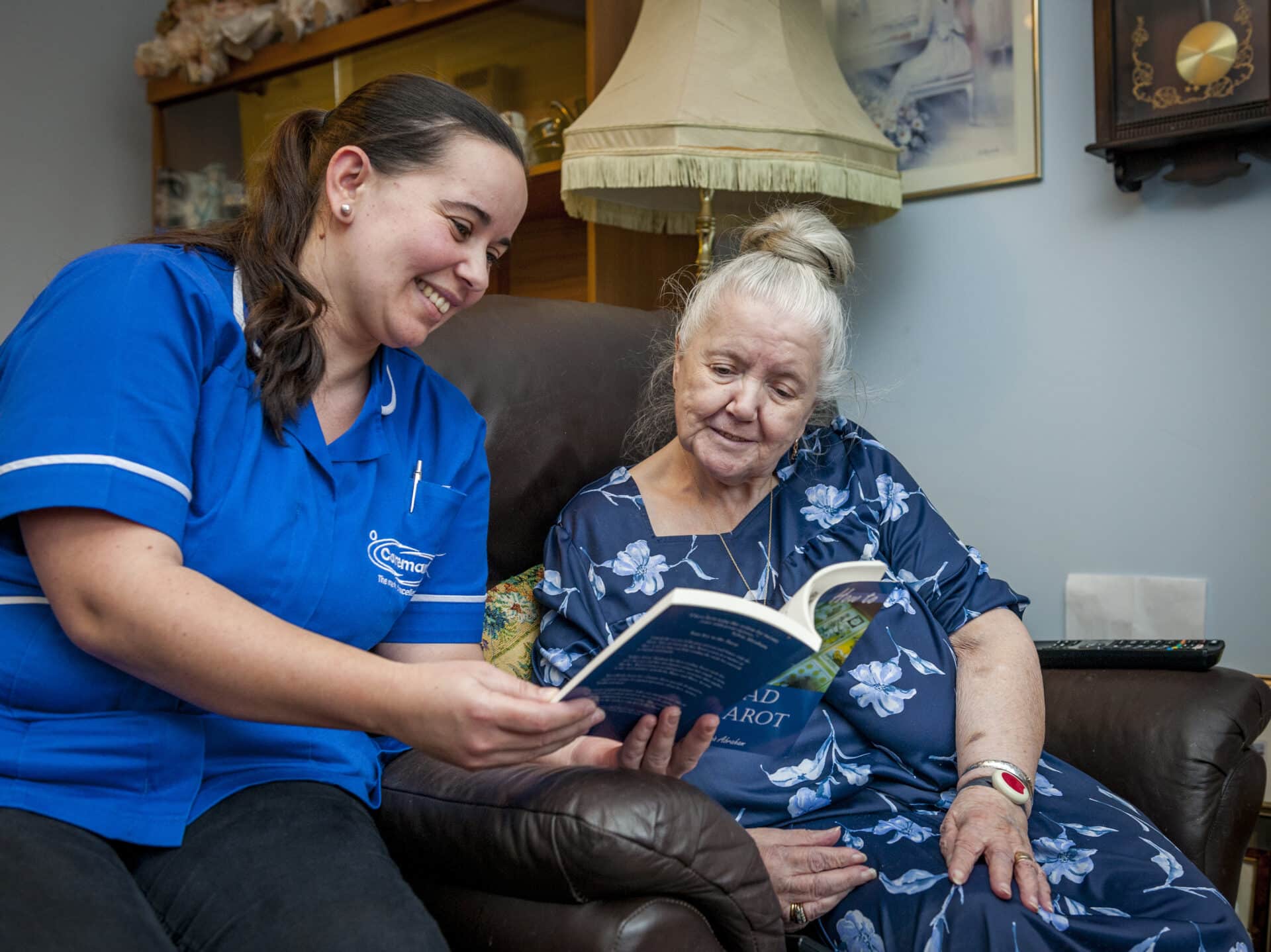The role of home care in dementia care

The best place for a dementia patient is home, whenever that situation is possible. Familiarity with their environment means the individual is less upset and less stressed and, thus, more likely to be comfortable and welcoming to family and friends.
(Sadly, home care isn’t possible in every case. However, 61% of over-65s currently suffering from dementia remain at home, at least for now. Most of these are looked after by unpaid carers – family or friends.)
This blog discusses dementia home care and why using a professional home care service might be best for all involved.
Unique needs and challenges faced by dementia patients
Dementia is an umbrella term describing the symptoms of many different types of disease. It covers characteristics like forgetfulness, poor judgment and reasoning, a lack of understanding and focus, and changes in language and behaviour.
Many diseases fit under the dementia ‘umbrella’, the most common of which is Alzheimer’s. However, Parkinson’s disease, Huntington’s disease, Creutzfeldt-Jakob disease and Chronic traumatic encephalopathy are also technically dementia. You may also have heard of Lewy body dementia, vascular dementia, frontotemporal dementia, and other variations.
Dementia is a terrible condition, which currently affects about 900,000 British residents. This figure will rise steeply.
The importance of familiarity in home care
Sadly, it’s extremely difficult to predict which parts of a person’s personality and memories will survive dementia and which won’t. For example, some individuals maintain incredible long-term memory but become very forgetful in the short term. Some are the opposite. Others retain a wonderful memory, and still more can’t remember anything.
Familiarity
The best thing anyone can do for someone suffering from dementia is to provide familiarity. This could involve any of the following:
- Home care – by being cared for at home instead of in a residential or nursing home, the patient is more likely to know where they are. This almost always helps reduce stress and makes them more comfortable. For someone with dementia, you’ll need 24/7 live-in home care services.
- Keep the house layout as similar as possible – moving all the rooms around might unsettle the person with dementia. Changes will likely be necessary but don’t make them too drastic.
- Media – music has been shown to have incredible effects on people with dementia, especially when they already know and like the tunes. Play this music wherever possible. You could also watch all the usual TV shows or listen to radio shows as ‘normal’.
- Establish routines – like it or not, we all function better with regular routines, and the same applies to dementia patients. For instance, getting up at a certain time before eating a particular meal for breakfast and going for a short walk might be a good way for someone to start the day.
- Avoid saying “no” – wherever possible, try not to tell a dementia patient “No”. Remember, they’re likely confused. Instead, when necessary, spin the conversation or find a way to steer them away from something without making the situation stressful.
Home care services provide an excellent way for a dementia patient to retain their individuality as much as possible without applying a significant mental burden to their loved ones.
Benefits for family members, friends and loved ones of home care
Home care services also benefit the loved ones of a dementia patient. Instead of watching their mental and physical decline through visiting hours in a care home, you’ll have full access, as usual, to their home. In this location, they have the best chance of a comfortable setting, leading to an as-stress-free-as-possible environment.
Likewise, a home caregiver takes the burden of caring off your shoulders. We understand how monumentally tough it is to look after a loved one in this condition. Home care services take this section of the burden from your shoulders, freeing you to focus on their well-being without sacrificing other commitments such as your own family.
Watching your family member or friend deteriorate as dementia progresses is extremely hard. Wherever possible, home care provides the framework to make things as comfortable as possible and potentially slow the rate of decline. Take it day by day.
Caremark Gloucester & Stroud provides dementia home care services
Caremark is a home care service provider based in Gloucester, offering professional home care services across the county and beyond, including Ruscombe, Gossington, North Nibley, Wotton-under-Edge, Bevington, Newtown, Arlingham, Cranham, Painswick, Bisley and Chalford. Our caregivers are trained and experienced, able to help both dementia sufferers and their loved ones navigate this challenging journey.
For more information on what you can do to help a dementia patient, why not get in touch with us? Excellent resources are also available from Dementia Friends and Alzheimer’s Society. Your local NHS doctors and nurses will also be able to assist.
Call our office on 01453 701977 to discuss dementia home care services whenever you feel it’s time.